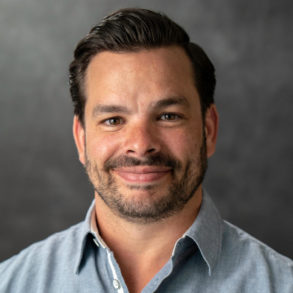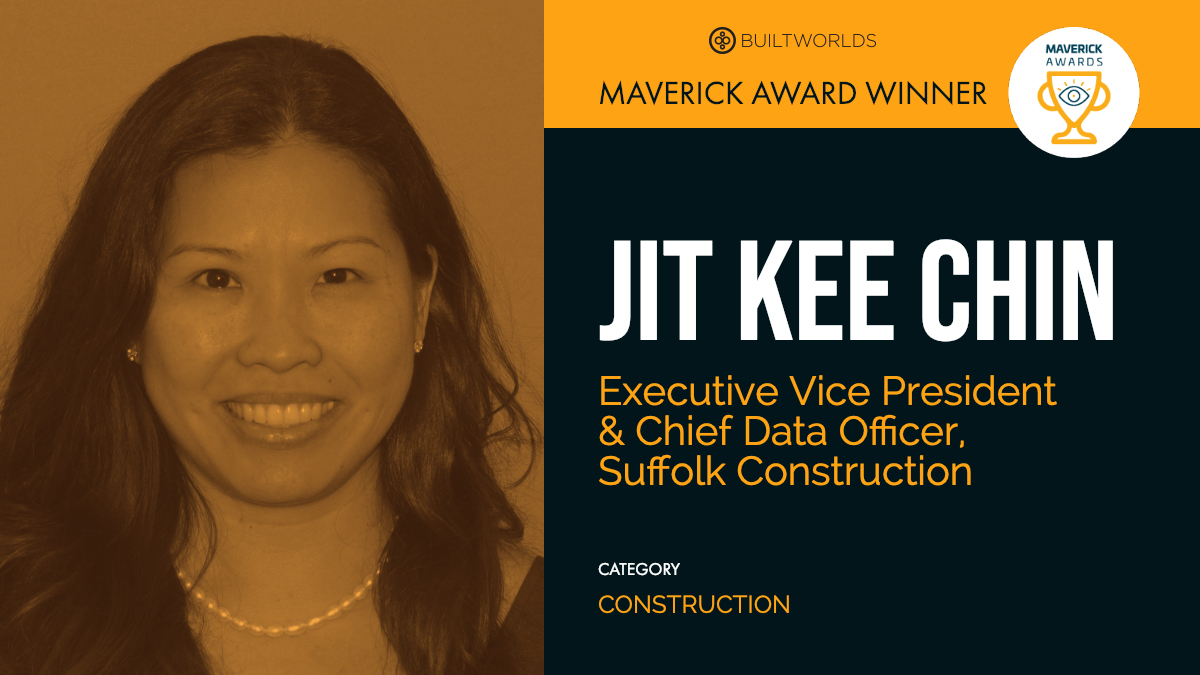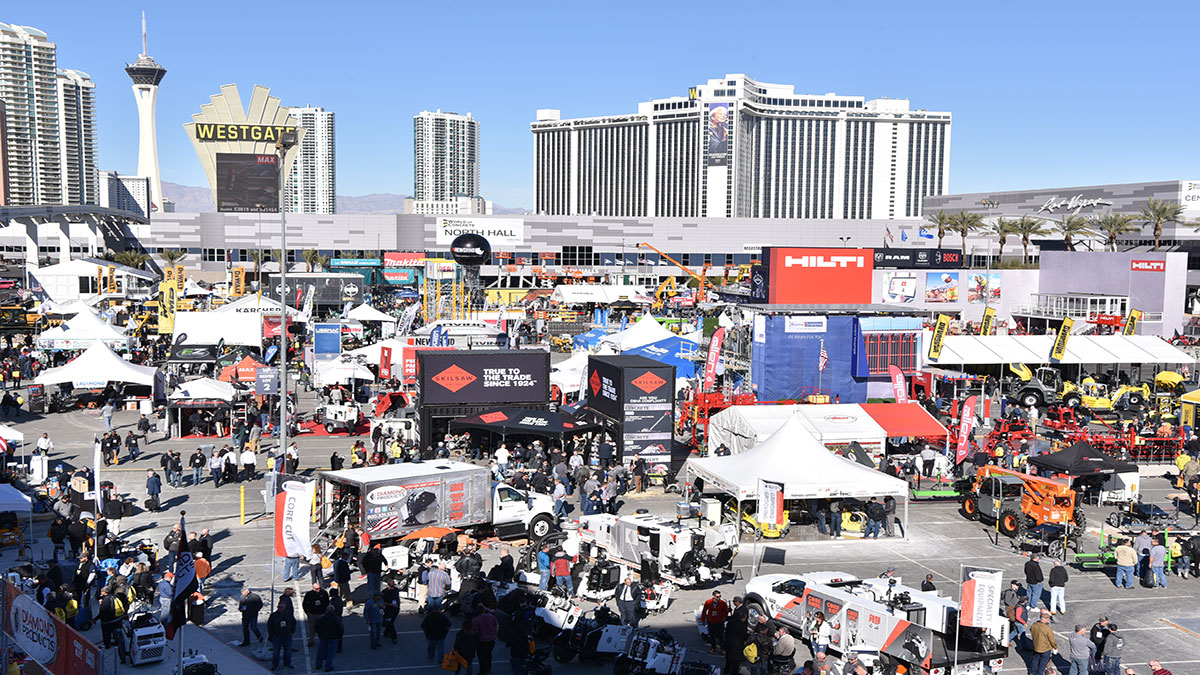
BuiltWorlds sat down with Paul Ozinga, Owner and Executive Vice President of Ozinga, a concrete, cement, logistics, and energy company based in Chicago. We talked about the company's family roots, goals, and the amazing Chicago-based projects Ozinga has been vital to.
Here in Chicago Ozinga is a really well-respected company. I feel like every time I'm somewhere in the city, I see one of your striped trucks driving around. For readers who aren't necessarily from the Chicago area, can you describe what Ozinga is and what you all do each day?
Ozinga is a fourth-generation family owned American business in the construction materials and logistics industry. We’ve been in business for 91 years and are located in five states. Most people associate us with our ready mix operation due to the trucks on the road. While ready mix concrete was our exclusive product for decades, we have continued to expand our products and services in the building industry.
As for the trucks on the road, those trucks are filled with concrete. Concrete is made out of sand, stone, cement, and water. All those ingredients are combined at a plant, put in the back of a ready-mix concrete truck, and mixed up in a plastic state—like a liquid. When water hits the cement, it starts to get hard. Concrete is delivered to different jobs sites where it gets placed and eventually sets up into a solid. Believe it or not, concrete is the second most consumed product after water. A lot of people don’t know that. The red and white stripes are definitely a great marketing tool because it creates a little more attention. When you see a ready-mixed concrete truck, that’s what’s going on.

Additionally, you all do a fair amount beyond concrete. You do a lot of logistics. I wrote a story about how you all use barges to take debris out of job sites. Ozinga is a company that does a fair amount.
Yes. One of the businesses is ready-mix concrete. We have another marine business, where we have a fleet of barges and tugboats, and we’re able to value-engineer different things for customers with access to the waterways. For example, when it was a rough winter in Chicago, we were able to import a lot of salt, throughout numerous terminals in Illinois, as well as load a lot of equipment to send out the salt. We also source a lot of our raw material via the river.
We have an energy business that builds compressed natural gas fueling stations and does maintenance on those around the country. Our businesses complement each other in a lot of ways as we continue to push the boundaries of what we do.
With that in mind, what are Ozinga's core values? I know you all are a family company with deep roots in the city, but can you spell out what your core values are?
I'll just start out by saying why Ozinga exists, which is to make a positive impact on people and their families and the communities for generations to come. We believe if we focus on our values first, then we can attract like-minded people and create a high-performing culture to deliver results and outpace the competition. Our main values are service, learning, and entrepreneurship. We really want to go above and beyond in serving the needs of others, and this requires love and care for all people. We also believe learning is a lifelong journey. No matter what kind of life you're in, we all have something to learn. This is a behavior that requires humility, patience and grace. The other value is entrepreneurship. We believe in people's initiatives to take risks and not be afraid to fail. We see change as the opportunity to be innovative and growth-oriented. A lot of people want to stay in the lane and focus on what they're doing. We just want to continuously be changing, creative, imaginative and doing different things.
As I mentioned earlier, Ozinga is a family business with a really rich, deep history. What do you think this adds to the company and how it conducts its business?
We believe that a good name is more desirable than great riches. With that rich history comes a lot of generations before us that have helped build this solid name and reputation. We like to do business with honesty and integrity and serve others. We get a lot more joy out of that and how we conduct our business.
Over the past few months, I've written a lot about Ozinga projects that have utilized sustainable or environmentally friendly initiatives. Why are these methods a priority for the company?
The world obviously has a limited amount of resources, increasingly so with every day that goes by. Being a generational family business, we want to make sure that we're stewarding those resources to the best of our ability. We want the world to be a better place because we were here. As I stated, that's why we exist: to make a positive impact on people, their families, and communities for generations. We ask ourselves questions like how are we paying attention to what we're using? How can we reuse it? Are there better options or more efficient methods that we can be paying attention to in the way of being sustainable? We've come across a lot of different, unique things that we've instituted and they're really pushing the boundaries of the construction industry.
We believe that a good name is more desirable than great riches.
Why do you think it's important for companies at large, especially those in the built world, the AEC industry, to prioritize sustainable methods and practices?
I think it's important to pay attention to the whole cycle of how things are made, how things get done, how things come, and how things go. We can't not just discard something—we must see is as fresh. I think we need to think through what it looks like to recycle or reuse something and innovate newer and better methods of doing things that result in less waste. Really, we can go further, but it's very important that we're cognizant of our resources and how we're utilizing them and being smart about how we invest in technology and other assets that really reduced the number of natural resources we use.
What part about working at Ozinga makes you personally the proudest?
It's all about the people. It's relationships. You know, we invest in people and relationships because we believe in their attributions and then they'll have an eternal impact. Our impression on people will leave a lasting legacy. That's critical to our success, but it's also really fun to work with all these people and watch everybody work as a team and accomplish something that individually would be very difficult to accomplish. We are a family-owned business and we treat our coworkers as part of the family. It's fun to look around and see things from start to finish get done successfully and everybody working as a team. It just really increases your faith in humanity and I'm proud of that.
That's very cool to hear. Along those same lines, what is your favorite part of your job?
The favorite part of my job is strategizing on how to get things done with the team that we have and building relationships with people all along the way, learning and innovating, and creating. It's really fun. It's really cool. And we're always looking at every project with a unique lens to see how we can conquer it together.
Over your entire tenure at Ozinga, what is the coolest, most interesting project that you worked on during your time at the company?
There have been some really neat projects. There have been really big projects that have been very unique like Wacker Drive and Wrigley Field. These are rich with history, are just amazing engineering feats, and they'll be there for generations after us. And then there are projects that are not very big in nature, but they've been very unique. We're working on deep tunnel projects right now underground for water reclamation. Those are very cool jobs.
I wrote about your Wacker Drive project. But, can you fill me in what you did at Wrigley?
Wrigley had a big reconstruction program that's been going on for the past three years between the whole outside, the bleachers, and the baseball field. They added on restaurants and a hotel to the whole area. They basically were able to maintain the history of the stadium while updating and upgrading a lot of the facilities, amenities, and aging concrete there.
Last question. What do the next five to 10 years at Ozinga look like? What are the company's goals as you look forward to the future?
Ozinga's main goal is to push the boundaries of the construction materials and logistics industry. Over the next five to 10 years, of course, we'd like to grow and expand. There's really a big focus on technology, people, innovation, and how we do things. I see some big changes in the way we produce concrete, how we source things, and how technology is used in the next 10 years. So, there's going to be a lot of changes, for sure. And then with concrete alone, we already are looking at all different kinds of neat mixes with unique, exotic materials that haven't been used before. I think the manufacturing will look different.
Paul, I appreciate your time. Thank you so much for talking to us.
Thank you!





Discussion
Be the first to leave a comment.
You must be a member of the BuiltWorlds community to join the discussion.